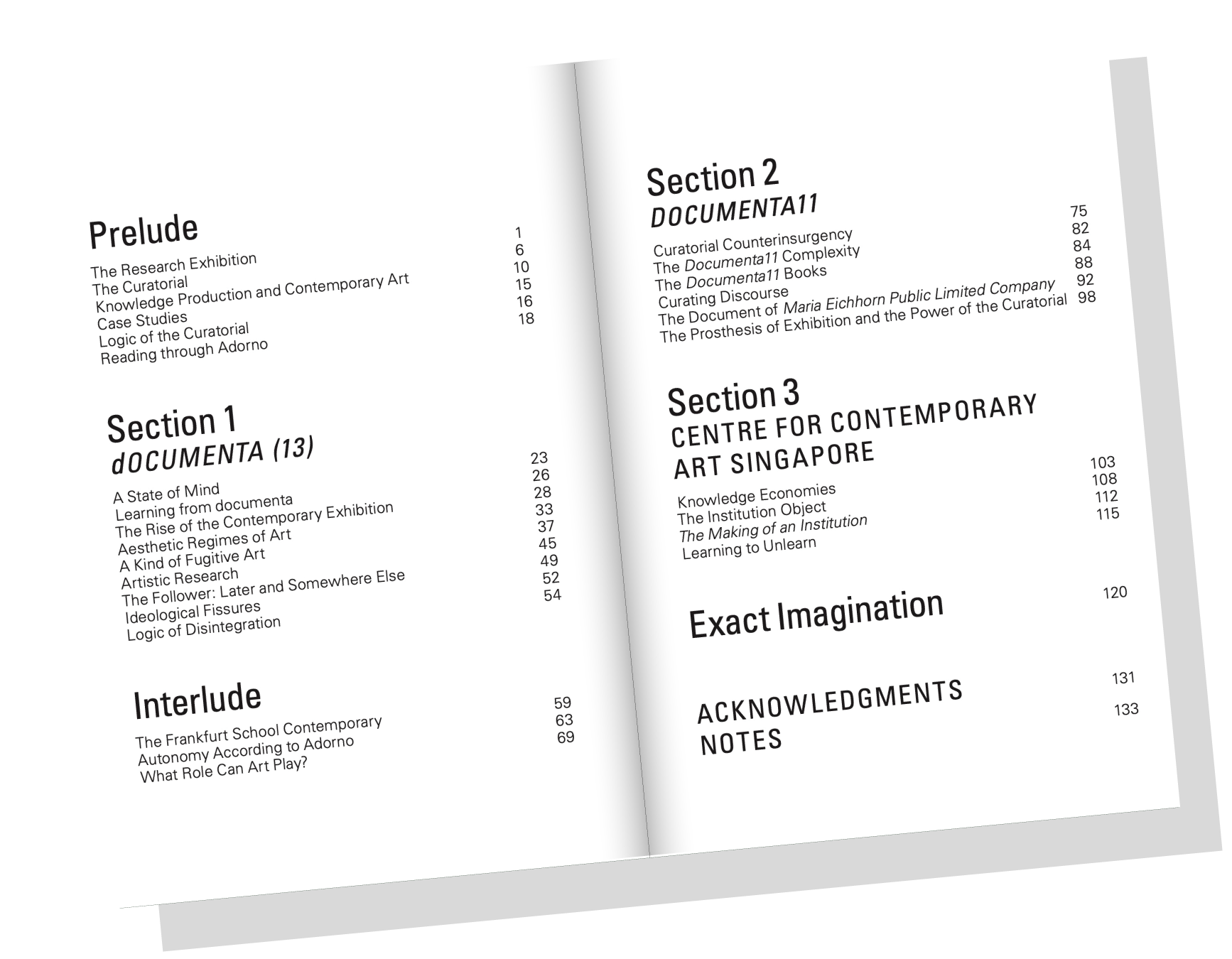Postsensual Aesthetics: On the Logic of the Curatorial

Contemporary art exhibitions appeal to cognition as well as the senses, modeling a new and expansive understanding of global aesthetics.
Authored by James Voorhies
MIT Press, February 2023
176 pages
5.25 x 8 inches
In this original work of aesthetic theory, James Voorhies argues that we live in the shadow of old ways of thinking about art that emphasize the immediate visual experience of an autonomous art object. But theory must change as artistic and curatorial production has changed. It should encompass the full range of activities through which we encounter art and exhibitions, in which reading and thinking are central to the aesthetic experience. Voorhies advances the theoretical framework of a “postsensual aesthetics,” which does not mean we are beyond a sensual engagement with objects, but rather embraces the cognitive connections with ideas that unite art and knowledge production. Cognitive engagements with art often begin with publications conceived as integral to exhibitions, conveying the knowledge and research artists and curators produce, and continuing in time and space beyond traditional curatorial frames. The idea, and not just visual immediacy, is now art’s defining moment.
Voorhies reframes aesthetic criteria to account for the liminal, cognitive spaces inside and outside of the exhibition. Surveying a wide range of artists, curators, exhibitions, and related publications, he repositions the aesthetic theory of Theodor Adorno, and draws inspiration from Rosalind Krauss and Fredric Jameson, to describe a contemporary “logic of the curatorial.” He demonstrates how, even as we increasingly expect to learn from contemporary art, we must avoid an instrumentalist and reductive view of art as a mere source of information. As Voorhies shows through an analysis of two major global exhibitions, dOCUMENTA (13) (artistic director Carolyn Christov-Bakargiev) and Documenta11 (artistic director Okwui Enwezor), and of Ute Meta Bauer’s curatorial work at the Centre for Contemporary Art Singapore, it is imperative for artistic research to retain its unique role in the production of knowledge.
MIT Press, PDF
Book Events
February 24, 2023
Louisiana Museum of Art, Copenhagen, Denmark: Presented the talk “Postsensual: Changing Aesthetics of the Curatorial” at the conference “The Politics and Poetics of Exhibiting: Proposing New Institutional Models Through Exhibitions.”
Documentation
April 20, 2023
e-flux LIVE, New York: A conversation between Stefanie Hessler and James Voorhies, presented on the occasion of the launch of Voorhies’s new book, Postsensual Aesthetics: On the Logic of the Curatorial, published by the MIT Press.
April 26, 2023
Pro qm, Berlin: A book presentation by James Voorhies to celebrate the launch his new book Postsensual Aesthetics: On the Logic of the Curatorial published by the MIT Press.
Endorsements
“Boldly and persuasively, Postsensual Aesthetics posits that the reception of contemporary art has changed dramatically and irreversibly in favor of cognitive modes such as research and reading. Aesthetic experience can therefore only be adequately conceived as existing beyond art's material manifestations—in 'exact imagination' (Adorno).”
Tom Holert, Harun Farocki Institut, Berlin; author of Knowledge Beside Itself: Contemporary Art's Epistemic Politics
“A long-awaited theorization of one of the strongest tendencies in art since the 1990s, namely extra-academic artistic research in relation to expansive modes of curatorial production. Ever generous, James Voorhies' thoughtful proposal shows us how to understand the production of knowledge by artists and curators. An essential alternative to the ingrained histories of art, and a must on every reading list about contemporary art and curating.”
Maria Lind, curator, writer, and educator, currently serving as the Counsellor of Culture at the Embassy of Sweden in Moscow
“A beacon for curators and institutions navigating our culture's insatiable appetite for contemporary art. In bringing the processes of producing knowledge back into the aesthetic, the curatorial, and the contemporary, James Voorhies shines a light on the audiences we serve and their incredible potential to think philosophically.”
Natasha Becker, Curator of African Art, Fine Arts Museums of San Francisco, de Young
...
